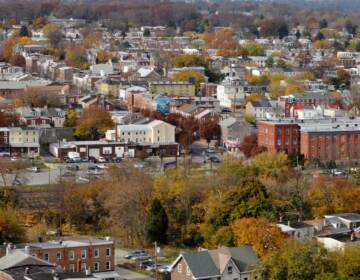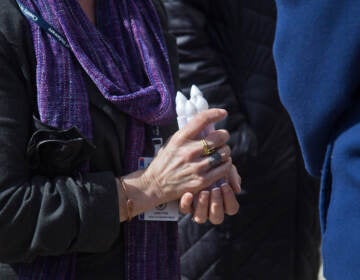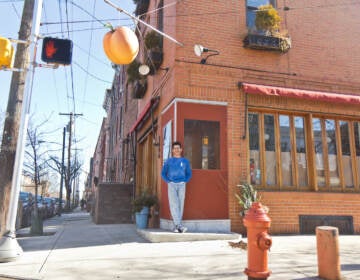‘I have to keep it strong’: Pa.’s business owners, self-employed fight to weather the coronavirus shutdown
The unprecedented closure has forced owners and contractors to begin tapping deep emotional reserves, and seek out new financial options, to stay afloat.
Listen 4:38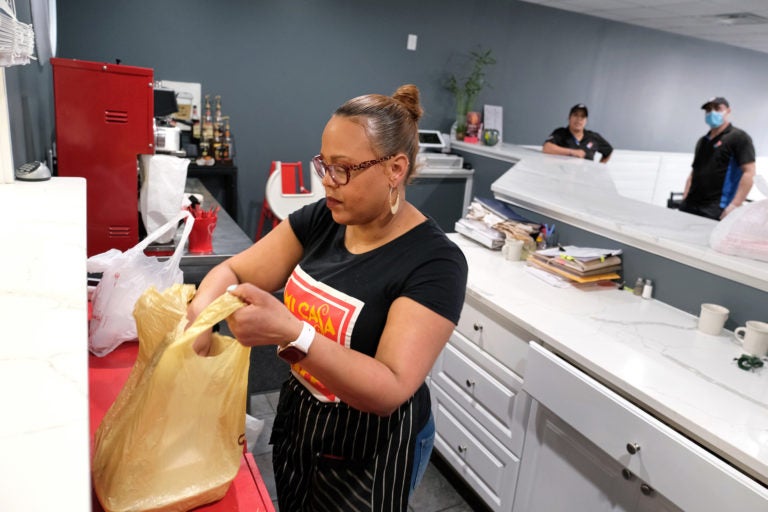
Johanny Cepeda-Freytiz bags up food that was ordered ahead of time for pick up on April 3, 2020, at Mi Casa Su Casa cafe in Reading, Pennsylvania. (Matt Smith for Keystone Crossroads)
For Johanny Cepeda-Freytiz, appearance still matters.
Cepeda-Freytiz and her husband Felix run Mi Casa Su Casa cafe in Reading, Pennsylvania. Normally bustling with everyone from office workers to high school kids, the cafe has been closed to the public by the coronavirus shutdown. Business is down 80%. Most of the cafe’s staff is furloughed. Now, Johanny and Felix are usually the only ones there to cook an occasional takeout or delivery order.
But in recent days she decided to put up new art on the walls. Felix touched up some paint. And whenever Cepeda-Freytiz, 46, picks up the phone for an order, she’s in a sharp outfit, makeup and a pair of gold hoop earrings.
“It’s a psychological thing, right?” she said. “You want to act like everything is normal, you want to look your brightest…even though that might be a facade.”
Cepeda-Freytiz is one of the countless small business owners and independent contractors across the Keystone state scrambling to find their footing during the shutdown, which Pennsylvania Gov. Tom Wolf has ordered to continue indefinitely to slow the spread of COVID-19. The unprecedented closure has forced owners and contractors to begin tapping deep emotional reserves, and seek out new financial options, to stay afloat.
Cepeda-Freytiz is looking to her past to guide her through this crisis. She left New York City and a job at a nonprofit to open the cafe in 2007 – just months before the Great Recession. The downturn hit Reading particularly hard. By 2011, the city was known as the poorest in America.
“[I had] suicidal thoughts, because I didn’t know what I was going to do,” she said. “When I recovered from that I made a vow that I would never, ever go through that again…This is why I am playing mind games with myself, because I need to stay upbeat, because I refuse to feel that way.”
So even though sales are down, the videos she posts on Facebook are upbeat, imploring her customers and friends to look for new opportunities during the crisis.
She’s working on a plan for a cafe mobile app to increase take-out orders, and is thinking about reconfiguring her kitchen so it can be rented out to caterers — whenever caters reopen.
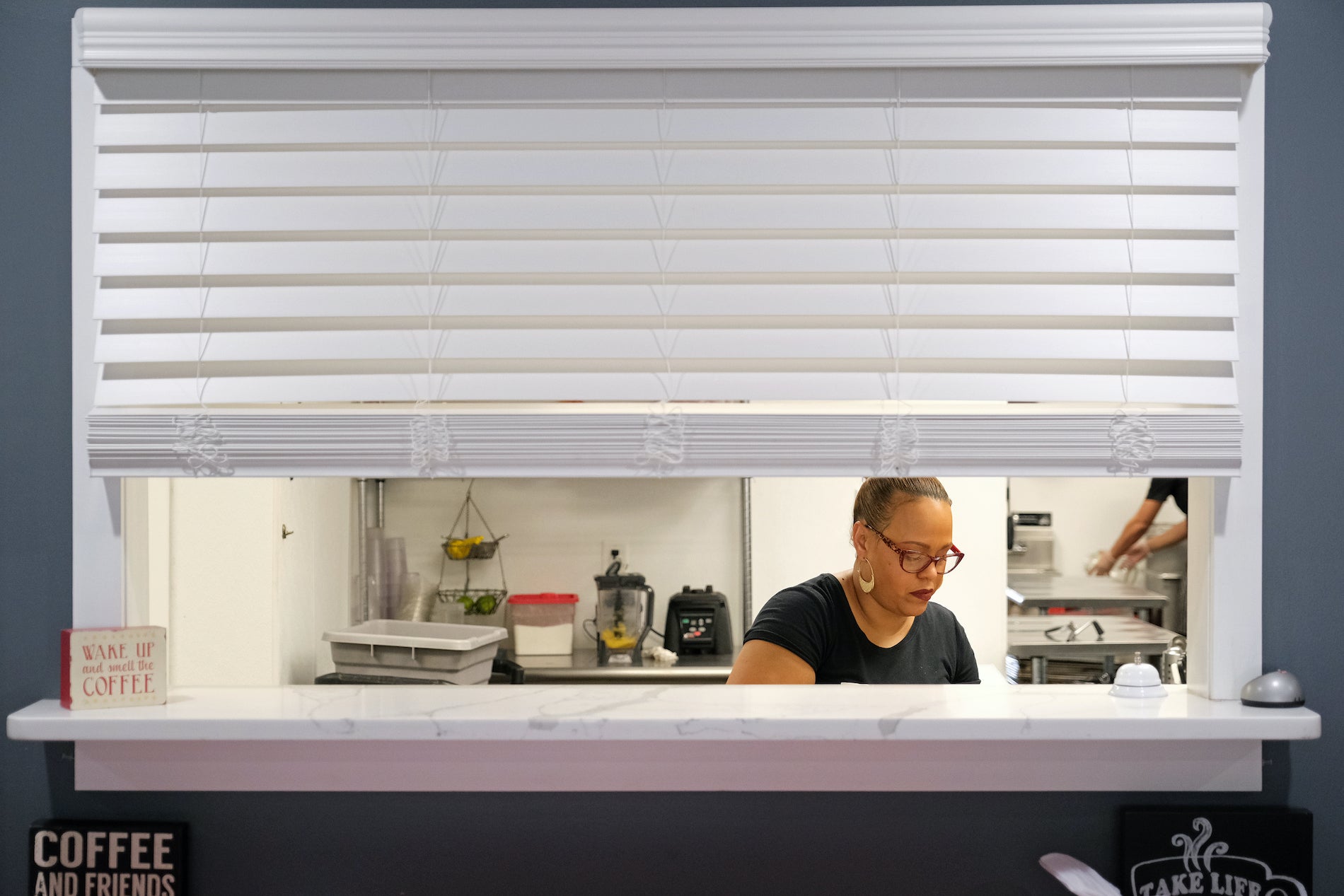
And Cepeda-Freytiz has another reason to try and stay positive: her constituents.
The cafe owner was appointed to a seat on Reading’s City Council in January 2019. Considered a rising star in the city, she was elected in her own right last November.
People came to her for advice and help before the pandemic. They’re looking to her for guidance even more now.
“I have a huge responsibility,” Cepeda-Freytiz said. “I have to keep it together. I have to keep it strong because that’s the only way I can give people hope.”
‘Starting to pull together’
Lance Walker, who runs a barbershop from his home in Chambersburg, has been drawing support from his customers — in more ways than one.
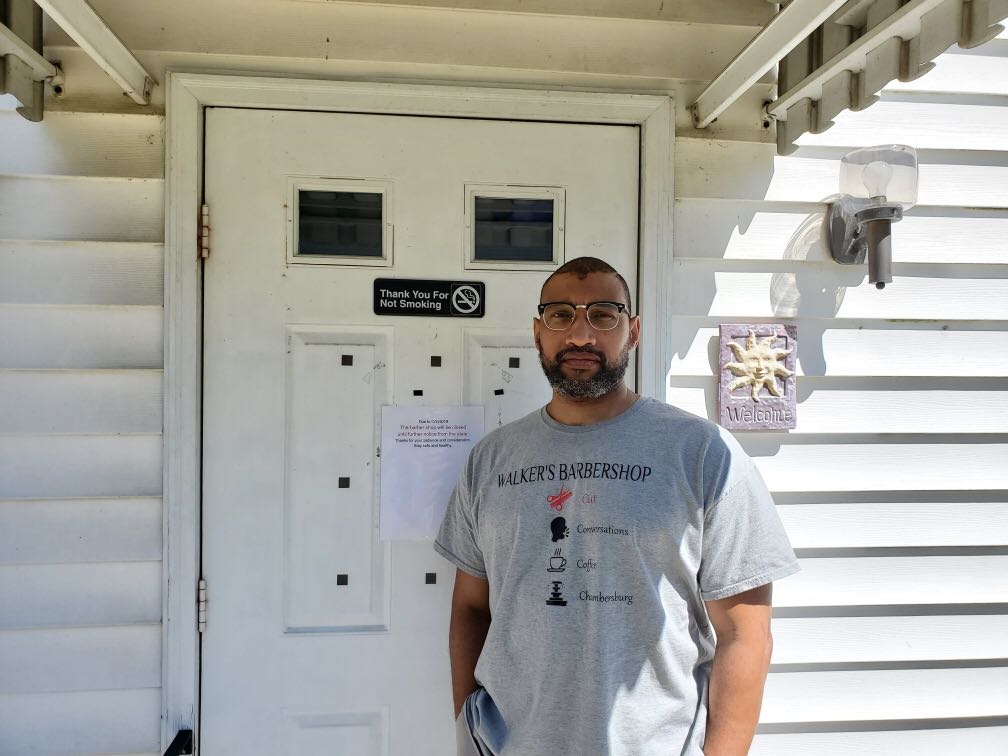
“I don’t know how many people have called, texted, emailed, even stopped by my house just to see how I’m doing,” said Walker, 53. “Quite a few customers have said they are going to continue to pay me like they’re getting haircuts.”
Walker voluntarily shuttered his barbershop a few weeks ago, but the decision didn’t come easy. At first, he tried booking his appointments an hour apart — instead of the usual thirty minutes — to give him time to disinfect. But it didn’t feel right. Many of his clients are over 70.
“I thought, ‘This really isn’t good if I am going to do the right thing and not turn my barbershop into a petri dish,’” he said.
Walker is confident he will be able to weather the shutdown financially: His wife has a well-paid job in the healthcare field, and with a home-based business, he doesn’t have to worry about also making rent.
But the closure means the area is losing more than just a good haircut. Chambersburg is the seat of rural, conservative Franklin County — the borough a blue dot in a seat of red — and Walker’s Barber Shop is the rare place where people of different politics and backgrounds actually engage.
When the coronavirus first started coming up among customers, Walker said it was treated with skepticism.
“I know a lot of my friends who are right-leaning felt like this was a ploy to make the president look bad,” he said.
In recent days, Walker said many of those people have started taking the pandemic more seriously.
“This thing has crossed all kinds of lines…Republican, Democrat,” he said. “So I see, in this area, something good coming out of it, where people are really starting to pull together. I’m hoping that it stays that way.”
‘We can totally get through this’
Yali Perez has taken the threat of coronavirus seriously from the beginning.
Perez, 29, has lupus, a medical condition that puts her at higher risk. Her ten-year old son and live-in mother both have asthma. So for the last few weeks the family has mostly holed up inside their rowhouse in Philadelphia’s Bridesburg neighborhood, venturing out only to pick up grocery deliveries.

Perez is a freelance writer, covering Japanese anime and Manga for online publications, and she hasn’t lost any work yet. Neither has her mother, Brenda Santiago, who works for a Philadelphia publishing company.
In fact, the shutdown has been something of a silver lining for Perez’s workday social life: her home office is livelier now than it has ever been.
“I have co-workers now!” Perez said. “It’s normally me and the dog at home. Now it’s me, my mom, the son, the dog — and they’re all using up the Wi-Fi.”
Perez said, if the shutdown does affect her family’s income, they don’t have a backup plan past “maybe [having] to swipe a credit card or two.”
But she’s confident they’ll make it through. After all, Perez said, she is a millennial.
“We survived Y2K, the recession, all the wars, 9/11, it’s kind of like: what’s the coronavirus going to do?” she said. “We have gone through so much other stuff, we can totally get through this.”
Keystone Crossroads first wrote about Cepeda-Freytiz, Walker and Perez as part of our Embedded 2020 series, election-year stories that put people, not politicians at the center. Laura Benshoff and Max Marin contributed reporting to this update.
WHYY is your source for fact-based, in-depth journalism and information. As a nonprofit organization, we rely on financial support from readers like you. Please give today.




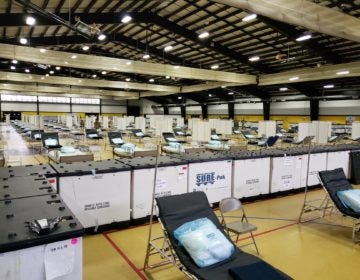
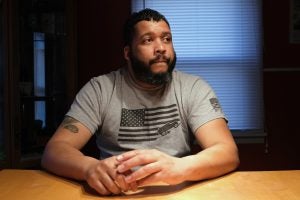
![CoronavirusPandemic_1024x512[1]](https://whyy.org/wp-content/uploads/2020/03/CoronavirusPandemic_1024x5121-300x150.jpg)
